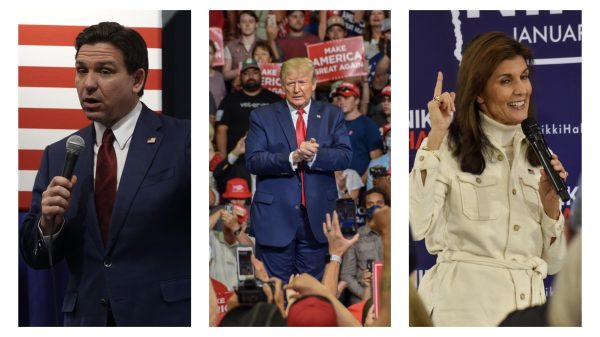Proposed House Bill 1686 raises controversy, taxes on alcohol for Oklahomans
A relatively new bill going through the Oklahoma House of Representatives is proposing raising excise tax on alcoholic beverages and exempting them from sales tax.
The excise tax on a barrel of beer would increase from $12.50 to $45 and from $1.47 per liter to $3.50 per liter on spirits, resulting in a hike in price for consumers and possibly putting Oklahoma at one of the highest tax rates for alcoholic beverages in the nation.
Gregory Burge, OU Associate Professor of Economics, said Oklahoma’s current taxes on spirits and beer place it in the middle of nationwide distribution rates at 25 out of 50. Passing House Bill 1686 would put Oklahoma in the top five, Burge said.
Burge said Oklahoma currently has healthy competition with it’s three most relevant border states: Kansas, Texas and Arkansas, but that increasing the tax on alcoholic beverages would put Oklahoma at an economic disadvantage by encouraging alcohol purchases outside of the state.
“We would go from kind of being in that mix and not having a lot of those border effects, to really encouraging our Oklahoma citizens to shop in those other areas,” Burg e said, “The ways people can kind of react to these higher taxes are nuanced, so you don’t need everybody to react by shopping outside of the state for it to have an effect.”
e said, “The ways people can kind of react to these higher taxes are nuanced, so you don’t need everybody to react by shopping outside of the state for it to have an effect.”
However, Burge said he can see how passing the bill would be beneficial to the state after recent changes in the prices of energy-related products and a simultaneous state budget crisis.
“It would raise more taxes for the state government and that actually would be one of the positive effects because they actually have a budgetary shortfall right now and people are scrambling around,” Burge said.
Local Norman resident Josh Elliot, a proponent of the bill, said he could see how the bill would provide health benefits by discouraging people from drinking alcohol and would also appreciate seeing the revenue from the taxes helping the state amidst a budget crisis.
Elliot also said he considers himself to be among the upper-class and would continue to pay for alcohol, regardless of the price.
“I say, I like it. Go for it, and I would pay the extra tax. It’s just like gasoline, even if gas was super expensive I would still drive it everywhere,” Elliot said.
Dan Sloat, OU law student and former U.S. Air Force Captain, argued for the opposing side. Sloat said that while he acknowledges the possible health and economic benefits of passing the bill, he ultimately thinks there are better options and resources for state funds.
“It’s clear that we need to do something to help alleviate the growing budget deficit. The discouraging of drinking alcohol will be good for Oklahomans from a moral aspect, I just don’t feel like that’s the right approach,” Sloat said.
Former Oklahoma State Governor, Brad Henry, explained that sin taxes are usually the easiest to raise, often making them an accessible resource and therefore one of the first places the state will explore in order to find more state fu nds.
nds.
While agreeing that sin taxes are an easy way to find revenue, Burge said many working-class citizens experience the regressive effects of these sin taxes.
“Among all the different ways to raise revenues, cigarette taxes and alcohol taxes are among the most regressive so that’s kind of a really negative aspect of them from a public finance standpoint,” Burge said.
Regardless, Henry said current party polarization is preventing legislators from accomplishing what needs to be done.
“Anything to do with taxes is going to be highly controversial in this legislature. My guess is, at the end of the day, it doesn’t pass. I just don’t think this group has the courage to do what needs to be done. I hope they surprise me, but I don’t see it,” Henry said.
Burge said alcohol has had a lot of conflict centered around it with the current legislature and that it is important for the state legislator to continue to consider other tax policies and revenue raising mechanisms in order to avoid future budget crises and provide services for the state.
“It’s kind of turbulent times for alcohol in the state,” Burge said, “I think a lot of times people think taxes are boring, but at the end of the day if you have good tax policy and you have a stable revenue raising mechanism then you don’t end up in these panic situations where the state can’t provide basic core services.”

